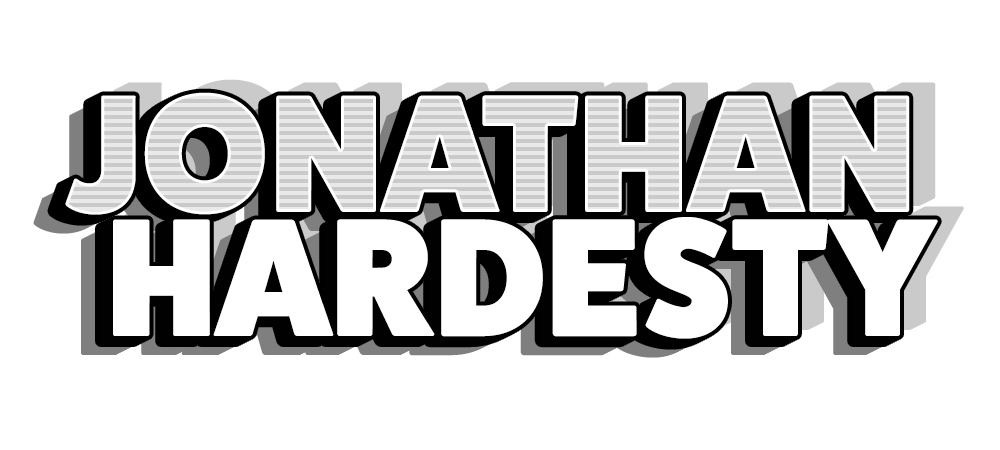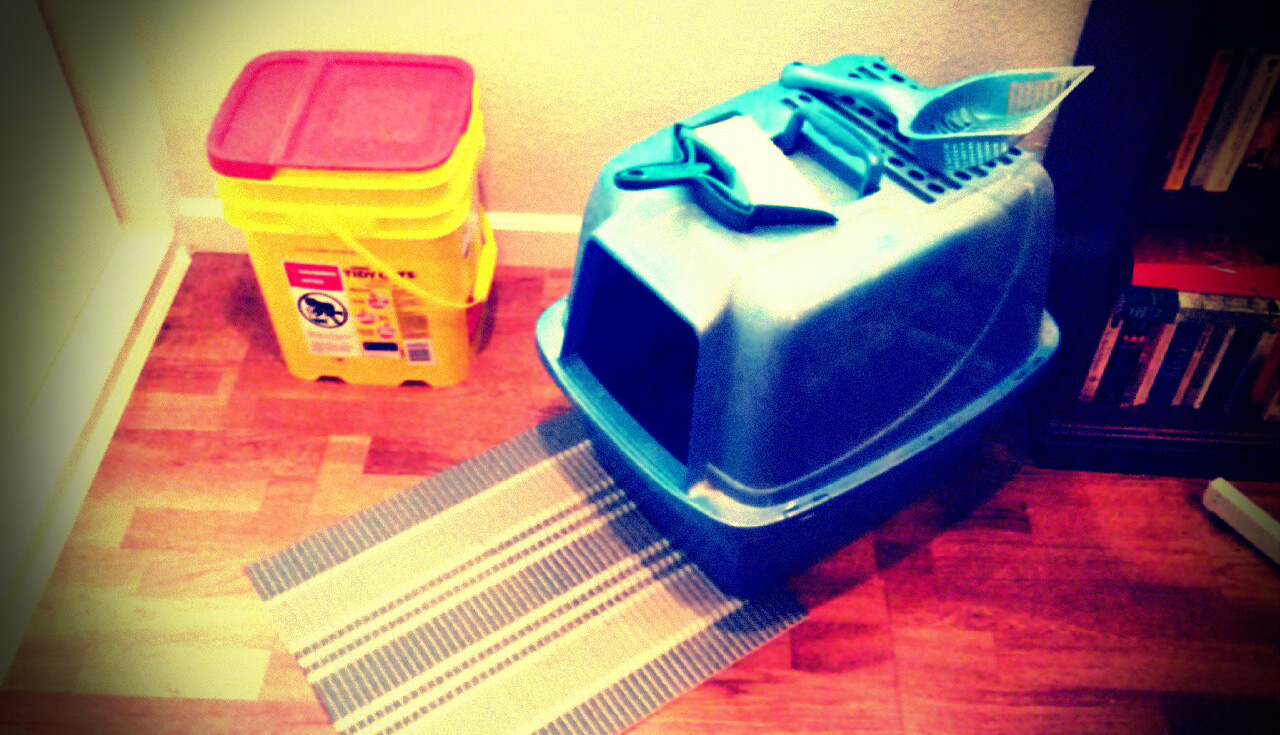Television for me has always been one of those love / hate things. There are shows I really really adore, and then there are shows that I really really hate. Everything in the middle stays there and eventually becomes forgotten as I move on to newer shows. Lately, I’ve been trying to deconstruct the way in which I “grade” these programs in the hopes that I might learn a little bit more about what makes me tick and to perhaps get an idea how we go about dismissing certain programming and then worshipping others in the same breath.
For me, the first and foremost thing has always been the story. When I’m coming to a show for the first time, I try to do a little research on the premise behind it to get an idea of what to expect. When Chuck premiered last year, I had done some snooping around to see what the big deal was supposed to be. Guy gets super-computer in brain, and then becomes a spy all the while working at a Best Buy clone. Okay. From there I watched the pilot to see how the story would play out, and I wasn’t disappointed on that front. Next episode, I wasn’t disappointed either.
On the opposite end of the spectrum is Journeyman. I did my research on the story and found out it was about a guy who goes back in time to change history. The twist on the formula was that he couldn’t control his journeys back, and that there were more like him. I gave the show the benefit of the doubt throughout the entire season, but I just did not get into it. It had an engaging story, sure, but something else was amiss for me with this show.
Which leads us to Characters. If the story is solid, I focus on who the story is about. You could have a TV show about ninja aliens and their many adventures on Mars, but if those pesky aliens don’t grab you, would you stay with it? I certainly wouldn’t. With Journeyman, my problem came with characters I never came to like all that much. The main character, to me, was nothing more than a one note “reluctant hero” who had to come to terms with his calling in each episode. And then there was his wife, who to me felt completely underwritten. While he went back in time to save people and pine over his ex, she stayed with the kids and reminisced about sleeping with his brother. None of them seemed all that interested in fixing their lives by the end of the season that I simply gave up. I liked the story, but just didn’t like the characters.
An interesting series for me when it comes to my little grading rubric is House. Good characters and good story in season one. Season two was mostly the same. Season three changed some for me and I found that none of the characters were doing things that felt true to how things should go. I stopped watching when House didn’t “learn his lesson,” and continued his drug habit that nearly killed patients earlier in the season. I’ve since come back to the show, where it’s seemingly returned to what made it good in the first two seasons. Time will tell, what sort of arc develops, but at this stage in the game I’m pretty happy with it.
Story arc, to me, is different than story. The story arc is what the season is about, whereas the story is what the series is about. The story of House is “a team of bright doctors solve confounding medical mysteries with an edgy doctor who plays by his own rules.” But the arc is what drives the seasons forward.
I’m sure no one really needs someone like me explaining story and story arc, but I find it quite significant in how I enjoy (or not enjoy) television. What is the season all about? Do we get a glimpse of that in the beginning, or does the meaning come later? Are there blatant antagonists, or are we given a “man vs self” kind of season? Season one of Dexter perhaps did this best by giving us the heads up to what the season would be about in episode one. We’ve got the serial killer chasing after another serial killer, and finding out about his sordid past along the way.
When I watch a pilot episode, I expect to get some kind of idea what the arc is supposed to be, or at least an inkling that I’ll find out later. Fringe did a decent job with this, although they’ve kept everything vague enough to frustrate rather than engage. Firefly, perhaps one of my favorite sci-fi shows to ever grace the small screen, did a pretty good job of establishing what season one would be about: the hunt for River and Simon. The idea here is that when I look back to episode one from the last of the season, I see a progression toward an end point.
What frustrates and confounds my set of rules in regards to television is the show Heroes. The story of the series was a good one: ordinary people become super heroes. That kind of shit resonates with me, as I’m sure it does with you as well. I know I’ve always wanted to wake up and be able to teleport anywhere like Nightcrawler, or be able to move metal with my mind. I’ve also wanted to have the ability to fly, so I could ditch the CTA once and for all. In short, this was a premise I could get behind.
And then we started to introduce the characters. I remember thinking after episode one of season one that I’d rather see a show about Hiro than any of the other characters. Peter was kind of a whiny bitch, Claire just did the whole teen angst thing with healing powers, and Nikki had a sexy body with a dark secret. Funny how none of that has actually changed throughout the show.
What killed the third season for me, essentially, was the fact that Nikki repeated her storyline once again from season one, but this time could shoot ice out her arm instead of tear people apart. The argument that it’s her personality disorder at work, though sound, really pushes the envelope of “copping out.” Really? They couldn’t find a way in two seasons to make Nikki matter in the show? They couldn’t turn her into a strong female hero?
Moving on.
The story arc to all three seasons of Heroes is dreadfully simple: Everyone gets powers and the world blows up. It was neat in season one, but now feels rather trite. Who’s gonna blow up the world this time? Future Peter? Did he ever figure out his pesky ability to absorb everyone’s powers? Or did the formula thing *GASP* make him forget?
Someone pointed out to me that it’s cool that we can get this way about television nowadays, and I’d agree wholeheartedly. We’re living in a pretty good time for serialized television, and the fact that we can nitpick over details about these shows till we turn blue in the face is frankly quite rad. It’s amazing that we can argue about characters and what we liked or didn’t like about them, or we can argue whether or not red herrings are good in the beginning episodes of a series.
Anyway, that’s just my ramblings about the whole mess…




/agree
It's not Nikki, that was the whole point of the ice shooting, to show that there was no way it could be Nikki. I agree that it's sad they couldn't build her up into a decent character, but I'm A] glad Nikki is gone and B] glad Ali Larter still has a major role, because she is actually a really good actress. i agree that the whole world blows up thing every season is a bit repititive, but I'm OK with that for now. If it ends up being too similar to S1 or S2, I might have problems, but for now I'm satisfied. I think Peter is finally starting to be less whiny, while Clair is getting more angsty, so it's a tradeoff I suppose. Hopefully they make her character grow the hell up this season, but we'll see.
I agree with every general point in your post though, and can fully understand why you don't like Heroes S3 premiere. I guess I just buy into things really easily, and can therefore enjoy the show even with its flaws.
/agree
It’s not Nikki, that was the whole point of the ice shooting, to show that there was no way it could be Nikki. I agree that it’s sad they couldn’t build her up into a decent character, but I’m A] glad Nikki is gone and B] glad Ali Larter still has a major role, because she is actually a really good actress. i agree that the whole world blows up thing every season is a bit repititive, but I’m OK with that for now. If it ends up being too similar to S1 or S2, I might have problems, but for now I’m satisfied. I think Peter is finally starting to be less whiny, while Clair is getting more angsty, so it’s a tradeoff I suppose. Hopefully they make her character grow the hell up this season, but we’ll see.
I agree with every general point in your post though, and can fully understand why you don’t like Heroes S3 premiere. I guess I just buy into things really easily, and can therefore enjoy the show even with its flaws.
So, wait. It’s not the same person at all, then? I assumed that it was just another personality of Nikki’s manifesting a new set of powers or something. Hmmm. Well, then I won’t write off the character just yet. It’s irritating to me that the female characters in this show aren’t written very well, or are clearly written from a male’s point of view. Not that I am any better, but I almost wish we could see some of these core female characters become stronger and break through as key players in the Heroes universe. That would be pretty exciting to me.
And I do harp on Heroes a lot, which I think might be a testament in a way to the writing. It gets a strong response from me. Not many TV shows do that.
Heh. Damn these guys for making decent cliffhanger endings. It’s frustrating to want to boycott the show for some of these things, but then suddenly turn around and scream “FUCK YEAH!” at the screen when one of the heroes (or villains) does something really rad!
So, wait. It's not the same person at all, then? I assumed that it was just another personality of Nikki's manifesting a new set of powers or something. Hmmm. Well, then I won't write off the character just yet. It's irritating to me that the female characters in this show aren't written very well, or are clearly written from a male's point of view. Not that I am any better, but I almost wish we could see some of these core female characters become stronger and break through as key players in the Heroes universe. That would be pretty exciting to me.
And I do harp on Heroes a lot, which I think might be a testament in a way to the writing. It gets a strong response from me. Not many TV shows do that.
Heh. Damn these guys for making decent cliffhanger endings. It's frustrating to want to boycott the show for some of these things, but then suddenly turn around and scream “FUCK YEAH!” at the screen when one of the heroes (or villains) does something really rad!
/agree
It's not Nikki, that was the whole point of the ice shooting, to show that there was no way it could be Nikki. I agree that it's sad they couldn't build her up into a decent character, but I'm A] glad Nikki is gone and B] glad Ali Larter still has a major role, because she is actually a really good actress. i agree that the whole world blows up thing every season is a bit repititive, but I'm OK with that for now. If it ends up being too similar to S1 or S2, I might have problems, but for now I'm satisfied. I think Peter is finally starting to be less whiny, while Clair is getting more angsty, so it's a tradeoff I suppose. Hopefully they make her character grow the hell up this season, but we'll see.
I agree with every general point in your post though, and can fully understand why you don't like Heroes S3 premiere. I guess I just buy into things really easily, and can therefore enjoy the show even with its flaws.
So, wait. It's not the same person at all, then? I assumed that it was just another personality of Nikki's manifesting a new set of powers or something. Hmmm. Well, then I won't write off the character just yet. It's irritating to me that the female characters in this show aren't written very well, or are clearly written from a male's point of view. Not that I am any better, but I almost wish we could see some of these core female characters become stronger and break through as key players in the Heroes universe. That would be pretty exciting to me.
And I do harp on Heroes a lot, which I think might be a testament in a way to the writing. It gets a strong response from me. Not many TV shows do that.
Heh. Damn these guys for making decent cliffhanger endings. It's frustrating to want to boycott the show for some of these things, but then suddenly turn around and scream “FUCK YEAH!” at the screen when one of the heroes (or villains) does something really rad!